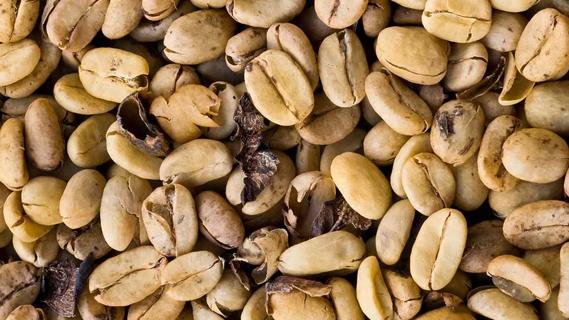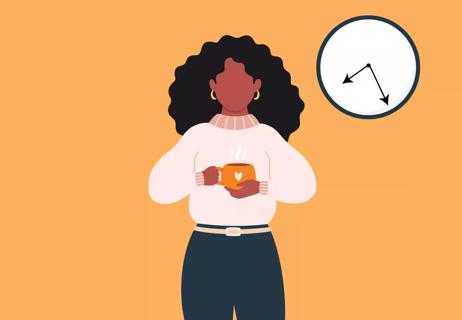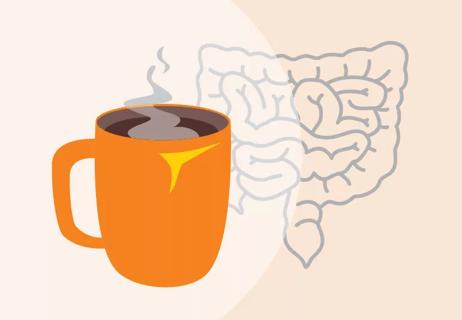That cup of joe may help decrease inflammation and remove damaged cells in the vital organ

You reach for that cup of coffee to perk you up in the morning and get over that mid-afternoon slump.
Advertisement
Cleveland Clinic is a non-profit academic medical center. Advertising on our site helps support our mission. We do not endorse non-Cleveland Clinic products or services. Policy
And while we know that a cup of joe has health benefits like lowering your risk of Type 2 diabetes and warding off depression, is coffee good for your liver?
Researchers are exploring the health effects of a java habit. Overall, studies so far spell good news for liver health.
“Yes, we have evidence that coffee is good for the liver,” says liver specialist Jamile Wakim-Fleming, MD.
So, what’s the link between coffee and your liver? Dr. Wakim-Fleming shares what the science says.
Your liver plays a key role in your overall health. With hundreds of different functions, your liver cleans toxins out of your blood, makes bile to help your body break down food and metabolizes proteins, carbs and fats for your body to use.
We don’t fully understand all the ways coffee affects liver health, but Dr. Wakim-Fleming says that we do have some ideas.
“Coffee contains antioxidants and other compounds that all play a big role in decreasing liver inflammation,” she notes.
For example, the antioxidant known as chlorogenic acid (CGA) prevents the buildup of fat in your liver by breaking down glucose.
Also, it’s thought that coffee triggers a process known as autophagy, in which damaged cells are removed. This helps keep your liver functioning properly.
Advertisement
“Coffee acts as an inhibitor of adenosine receptors, which are linked to liver injury, regeneration and fibrosis; thereby, coffee may decrease the progression of fibrosis/scarring in the liver,” explains Dr. Wakim-Fleming.
And coffee appears to protect people who already have liver problems. There’s evidence that coffee is beneficial for people with hepatitis C, a virus that infects the liver and can lead to cirrhosis and liver cancer by inhibiting the inflammation associated with it. But coffee doesn’t have a direct effect of curing the virus and it’s unclear if it directly prevents liver cancer.
Metabolic dysfunction-associated steatotic liver disease (MASLD), formerly known as nonalcoholic fatty liver disease, occurs when extra fat builds up in liver cells. It affects 1 in 4 people in the U.S., mostly in those who carry excess weight or have diabetes or an abnormal lipid profile. Over time, it can cause cirrhosis or scarring of the liver. That scarring can lead to liver cancer or liver failure.
But research shows that people who drink at least three to four cups of coffee daily have a lower risk of developing MASLD, mainly via improving insulin resistance and diabetes.
In people who already have MASLD, regular coffee drinking lowers the odds of developing cirrhosis. And among people who have cirrhosis, those who drink more coffee are less likely to die from the disease.
In a world of flavored lattes with extra whipped cream and sprinkles, you may wonder: Is coffee with creamer good for your liver?
“Black coffee is best,” emphasizes Dr. Wakim-Fleming.
If you just can’t stomach it black, swap sugar for artificial sweeteners. Add skim milk or plant-based milk instead of cream. As people with steatotic (fatty) liver disease (SLD) often have problems like diabetes and obesity, it’s especially important not to add extra fat and sugar to your coffee.
And when it comes to decaf, it’s still good for managing diabetes, which is a risk factor for liver steatosis and cirrhosis. A recent recommendation by the American Association for the Study of Liver Disease suggests that either caffeinated or decaf coffee can be consumed to receive liver benefits.
When it comes to coffee and liver health, this is a case of less is not more.
“We recommend at least three cups every day to help prevent liver problems,” Dr. Wakim-Fleming says.
And if you have hepatitis or SLD, even more — as many as four, five or even six cups a day — might be helpful.
“But some studies suggest that you don’t have to consume more than 400 milligrams of caffeine a day (one cup of brewed coffee contains 100-200 mg of caffeine) in order to avoid potential harm to your overall health,” she clarifies. “The jury is not totally clear yet.”
Advertisement
We know not everyone can handle that much coffee without bouncing off the walls (or worse). It can trigger headaches, difficulty initiating sleep, anxiety and jitters in some people. Dr. Wakim-Fleming only suggests going this route if you can tolerate it.
And if you have an irregular heart rate or other heart problems, excessive coffee might be dangerous. Coffee might also cause problems if you have lung cancer. In such cases, steer clear until you talk to your doctor for advice.
Plus, it’s important to note that coffee isn’t a miracle worker, states Dr. Wakim-Fleming. It won’t completely reverse liver disease or undo the damage caused by excessive alcohol use.
But it can be one delicious and satisfying step toward a happier liver.
Advertisement
Learn more about our editorial process.
Advertisement

The caffeine and natural acids in coffee may trigger acid reflux, but there are ways to lessen the effects

Along with boosting your energy, a moderate amount of coffee can help lower your risk of Type 2 diabetes, liver disease and certain cancers

Coffee is made up of mostly water, but it’s the caffeine you have to look out for

There’s no evidence to prove this supplement can help with weight loss, and it may come with risks

Morning, noon or night — the best time for that cup of joe depends on you

Depending on your sensitivity to caffeine, a late-night cup may be just fine

It’s fine for most, but it can worsen heartburn and ulcers if you’re prone to them

Coffee is better (and safer) ingested than injected

Wearing a scarf, adjusting your outdoor activities and following your asthma treatment plan can help limit breathing problems

Your diet in the weeks, days and hours ahead of your race can power you to the finish line

When someone guilt trips you, they’re using emotionally manipulative behavior to try to get you to act a certain way